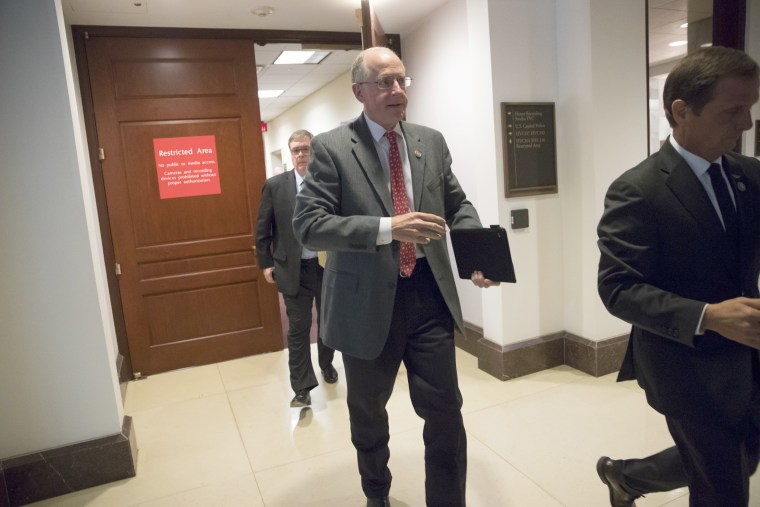WASHINGTON — The House Intelligence Committee formally ended its Russia investigation on Thursday, voting along party lines to release a final report that asserts there was no evidence of collusion involving the Trump campaign.
During a closed-door meeting, the Republican majority fended off more than a dozen attempts by Democrats to prolong the probe by subpoenaing additional witnesses. The GOP also rejected a motion to hold former White House chief strategist Steve Bannon in contempt of Congress for his refusal to answer key questions, and another to express support for allowing special counsel Robert Mueller’s probe to continue unimpeded.
Rep. Adam Schiff, D-Calif., said he and his fellow Democrats will continue their work without GOP input, including an interview that has been agreed to with a whistleblower from Cambridge Analytica, the data firm used by the Trump campaign that has come under intense scrutiny for its methods.
“The majority was not interested in conducting any further investigation, even when the flaws in what we have done so far have become so apparent over the course of the last week,” he told reporters.
The full classified report will now go to the nation’s intelligence agencies so that the most sensitive information can be redacted before public release, likely next month.
Rep. Mike Conaway, R-Texas, who has led the Russia probe since last April, said the release of the committee’s findings and recommendations helps finally deliver “answers to the questions the American people have been asking for over a year.”
Conaway told NBC News that the committee would, however, continue its oversight work including with ongoing Russian malign activities.
“Our responsibility is to see what Putin is doing, what anybody might be doing. That just never ceases,” he said.
While the full, 250-page report will first be scrubbed by intelligence agencies, the committee did make public a summary of 44 findings. They ranged from the noncontroversial — that Russia did indeed conduct cyberattacks on U.S. political institutions in the 2016 campaign and that Russian state actors and their intermediaries disseminated stolen communications from U.S. political organizations — to some of the most bitterly contested, starting with the GOP’s determination that there was no evidence of collusion.
The report faults the Obama administration for not doing enough to warn the public about Russian interference attempts and for an insufficient response, while also suggesting that officials leaked classified information about Russia’s activities to undermine Trump before he assumed office.
In one case, the report appears to lend credence to reports that Russian officials attempted to establish a back channel to communicate directly with the Trump transition team. Those efforts, the report finds, “suggest the absence of collusion during the campaign.”
The Russia probe has led one of Congress’s historically most bipartisan entities to a nearly irreversible divide. At one point during the contentious meeting Thursday, Rep. Mike Quigley, D-Ill., told NBC News he began making clucking noises to underscore what he said was the Republicans’ lack of courage, warning his colleagues that the entire chapter could ultimately stain their legacies.
“I grant that’s not professional,” he said.
Schiff noted that Republicans took the unusual step of making Thursday’s meeting a closed session, meaning that a transcript of the proceedings would not be made public, as has been past practice.
“I think they’re embarrassed about the shoddy nature of the work that they did and the indefensible nature of their arguments against holding Steve Bannon in contempt or subpoenaing certain records or witnesses,” he said.
